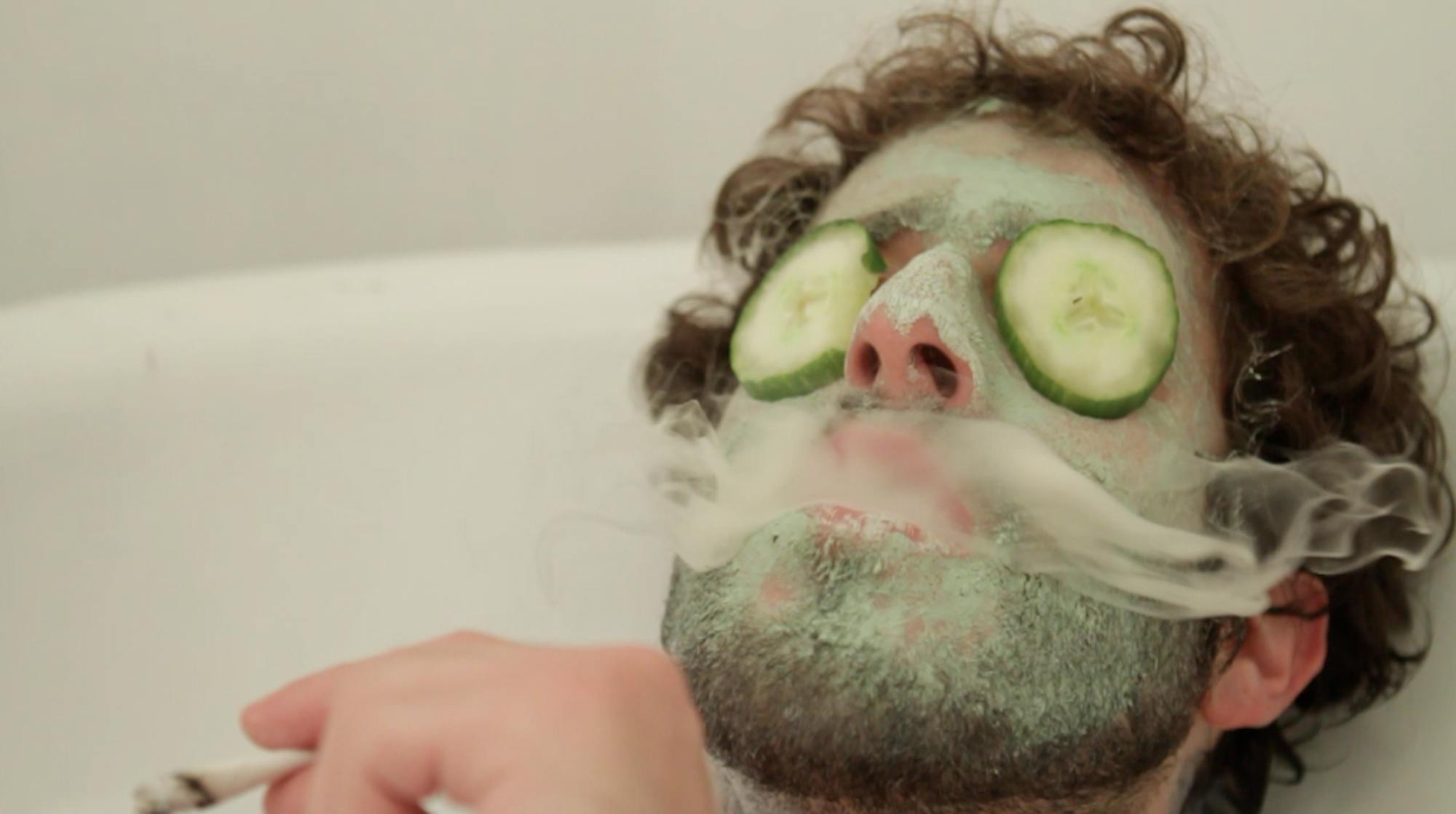Lil Dicky is now, by all accounts, a professional rapper. The skinny white man from the northern suburbs of Philadelphia first appeared on the music scene in early 2013 and gained notoriety with the launch of the music video for his song “Ex-Boyfriend” (2013). Back then, David Burd, the man behind the Lil Dicky pseudonym, was working as an accountant at an advertising firm with a side project as a rapper.
What started as a side project quickly grew into a bona fide career; Burd announced in 2014 that Lil Dicky was now his full-time gig. While his lyrical content is often satirical and comedic (read: downright silly), Lil Dicky is as serious as rappers come. Comparisons have been drawn between this relative newcomer and Childish Gambino, as both have sought to carve out off-beat, masterfully witty niches in the rap world.
With the release of his first full-length album, “Professional Rapper” (2015), Lil Dicky has planted his flag in the rap world. “Professional Rapper” is a repudiation of the stereotypes and clichés perpetuated in mainstream rap music and an affirmation of the quotidian. Rather than becoming some rap god, Lil Dicky seems more interested in being an everyman to his listeners.
His subject matter is not too different from that of the rappers he derides in songs like “Personality” -- he is, for example, rapping about picking up women on nights out -- but he drops all the pretense that other rappers might adopt in their takes on the subject. Lil Dicky does not pretend to be a stud; instead, he raps about how he is attractive because of his personality (and T-Pain, amazingly, joins him on the chorus).
“$ave Dat Money,” a song about Lil Dicky's frugality in comparison to some of his fellow rappers, is a special delight on this release. This is the kind of song that listeners will want to listen to several times to hear all the jokes embedded in the rapid-fire vocals.
The music video for “$ave Dat Money” went up on YouTube on the 17th and garnered four million views in four days. It is a natural extension of the song from which it springs. At almost nine minutes long, it is considerably longer than its source material (4:51), but it uses that extra time to supercharge the song’s punch. As Lil Dicky repeats throughout the video, the goal was to make the most epic rap music video of all time on a budget of no money at all.
At the opening of the video“Dave,” as Lil Dicky introduces himself, pitches his concept to Beverly Hills homeowners in an attempt to secure a location for his film shoot. The most amazing part is that someone actually does let Lil Dicky use their home to make his music video. Not only does he get inside a Beverly Hills mansion, but he also gets on a boat, into a night club and into a Lamborghini, all for free. Perhaps the most shocking part of the music video is when Lil Dicky hijacks T-Pain’s video shoot for his own video (look closely at this scene and one will notice that the dancers are totally ignoring Lil Dicky).
The satire is all well and good in this music video -- until it stops feeling like satire. During the boat scenes, Lil Dicky is accompanied by models as the boat cruises into the sunset. The satire is in the fact that the scene was produced for zero dollars and zero cents while Lil Dicky struts around like he owns the place. The satire breaks down in how the rapper interacts with the models. Some might argue that Lil Dicky playing with a model’s be-thonged behind is still a lighthearted joke, but it is, at the very least, toeing the line between humorous and disrespectful (if not leaping across it).
Does the whole video lose merit because of a few seconds of questionable content? No. There is a lot going for this music video, which is downright hilarious for the vast majority of its rather extended run. The credits at the end are worth a gander as well, as they reveal how the music video was paid for (mostly through bartering special mentions at the end of the video in exchange for locations and services). It may not win points for style and finesse, but “$ave Dat Money”'s music video more than makes up for that loss with its biting satire and sheer improbability.
Lil Dicky shows promise as professional rapper, but stumbles over himself

Lil Dicky is known for his comedic, satirical rap, but only recently made his music a full-time pursuit.
Summary
Lil Dicky's new music video aims to turn rap stereotypes on their heads, but runs the risk of affirming them instead.
3 Stars





